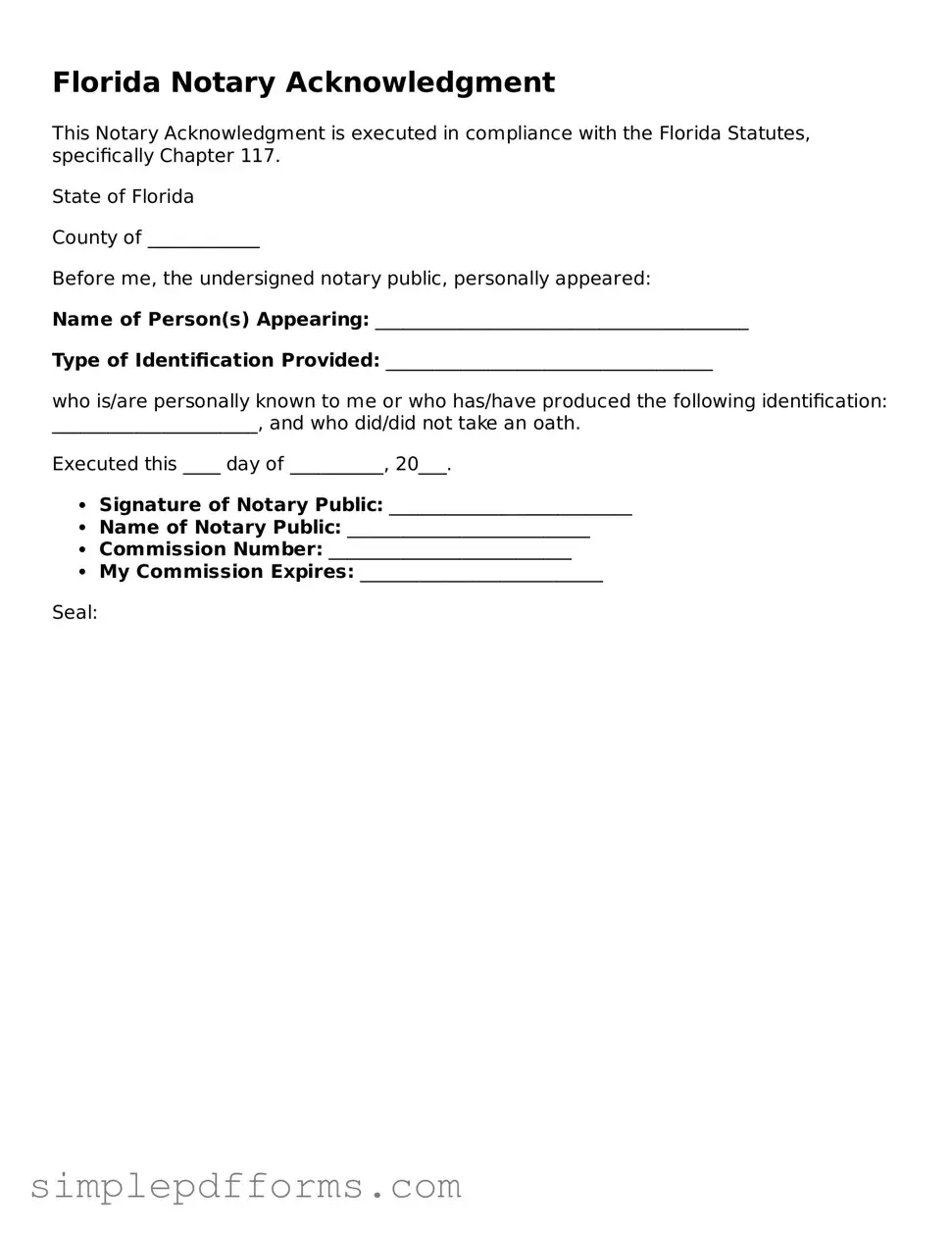Attorney-Verified Notary Acknowledgement Document for Florida State
The Florida Notary Acknowledgement form is a legal document that verifies the identity of a signer and confirms their willingness to sign a particular document. This form serves as a crucial step in the notarization process, ensuring that the signer's intentions are clear and documented. Proper completion of the form is essential for the validity of notarized documents in Florida.
Open Notary Acknowledgement Editor Now

Attorney-Verified Notary Acknowledgement Document for Florida State
Open Notary Acknowledgement Editor Now

Open Notary Acknowledgement Editor Now
or
Get Notary Acknowledgement PDF Form
Your form is waiting for completion
Complete Notary Acknowledgement online in minutes with ease.